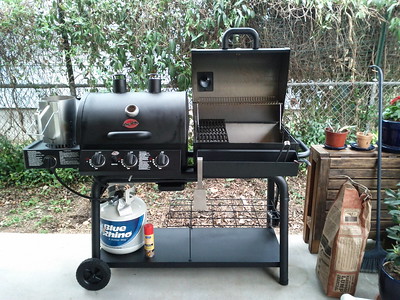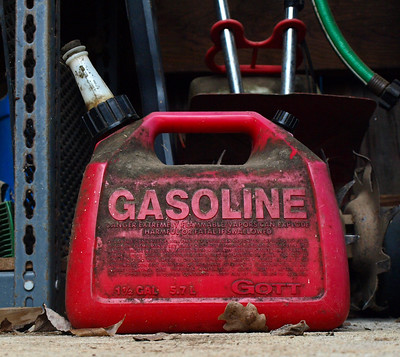
When it comes to fuels for outdoor activities such as camping, grilling, and heating, butane and propane are two popular choices. While both fuels have their own advantages and disadvantages, one common question people often ask is which one is hotter. The answer to this question is not straightforward, as several factors come into play when comparing the heat output of these two gases.
In this article, we will explore the differences between butane and propane and examine the factors that determine their relative heat output. By the end of this article, you will have a better understanding of which gas is hotter and which one is more suitable for your particular needs.
Which Gas Burns Hotter?
Propane has a higher energy density than butane, which means that it can produce more heat per unit of fuel burned. The heat output of a fuel is typically measured in British Thermal Units (BTUs), and propane has a higher BTU rating than butane. As you mentioned, propane has a heat output of around 9250 BTUs, while butane has a heat output of around 7750 BTUs.
In practical terms, this means that if you’re using a propane and butane stove with the same heat output, the propane stove will heat up faster and reach a higher temperature. Propane is also a better choice for cold weather conditions because it can vaporize at lower temperatures, while butane can become sluggish and less efficient in low temperatures.
However, it’s worth noting that the heat output of both fuels also depends on other factors, such as the burner design, the quality of the fuel, and the altitude. In general, though, propane is considered the hotter and more efficient fuel for outdoor activities such as camping, grilling, and heating.
Other Considerations When Choosing Between Butane and Propane
Aside from heat output, there are other factors to consider when choosing between butane and propane as a fuel for outdoor activities. These factors include:
Cost of Fuel:
The cost of butane and propane can vary depending on location and season. Propane is generally more widely available and can be cheaper than butane in some areas.
Availability of Fuel:
Both butane and propane are widely available, but availability can depend on location and season. Propane is more commonly used in the United States, while butane is more commonly used in Europe and Asia.
Environmental Impact:
Both butane and propane are fossil fuels and produce greenhouse gas emissions when burned. However, propane is generally considered to be a cleaner burning fuel than butane, producing fewer emissions per unit of energy.
Convenience and Portability:
Butane and propane can be purchased in small canisters or larger tanks, depending on your needs. Butane canisters are generally more portable and convenient for camping and outdoor activities, while propane tanks are better suited for outdoor cooking and heating that requires a larger fuel source.
When choosing between butane and propane, it’s important to consider factors beyond heat output, such as the cost and availability of fuel, the environmental impact, and the convenience and portability of the fuel source. These factors can vary depending on your location and the specific activity you’ll be using the fuel for.
Differences Between Butane and Propane
Butane and propane are both hydrocarbon gases commonly used as fuels for outdoor activities such as camping, grilling, and heating. While they have some similarities, there are also several key differences between these two gases, including:
Chemical Properties:
- Butane is a four-carbon alkane with the chemical formula C4H10.
- Propane is a three-carbon alkane with the chemical formula C3H8.
- Both gases are odorless, colorless, and highly flammable.
Boiling Points:
- Butane has a boiling point of -1°F (-18°C) and will liquefy at room temperature and pressure.
- Propane has a boiling point of -44°F (-42°C) and will remain a gas at room temperature and pressure.
Calorific Values:
- Propane has a higher calorific value than butane, meaning it produces more heat per unit of fuel burned. Propane has a calorific value of around 9250 BTUs per pound, while butane has a calorific value of around 7750 BTUs per pound.
Pressure and Efficiency:
- Butane requires higher pressure to vaporize and is less efficient at low temperatures. It is better suited for indoor use or warm climates.
- Propane vaporizes at lower pressure and is more efficient at lower temperatures. It is better suited for outdoor use, cold weather conditions, and high-altitude locations.
Cost and Availability:
- The cost and availability of butane and propane can vary depending on location and season.
- Propane is generally more widely available and can be cheaper than butane in some areas.
While butane and propane share some similarities as fuels, they have different chemical properties, boiling points, calorific values, pressure requirements, and efficiency at different temperatures. These differences should be taken into account when choosing between the two for a particular use.
In Terms of Heat Output
When it comes to heat output, propane and butane have some key differences. Propane has a higher energy content per unit volume than butane, which means that it can produce more heat when burned.
Propane typically burns at a maximum heat output of 9250 British Thermal Units (BTUs) per hour, while butane burns at a maximum of 7750 BTUs per hour. This means that propane can produce more heat than butane, making it a better choice for applications that require high heat output.
In addition to heat output, there are other factors to consider when choosing between propane and butane for a specific application. For example, butane is more commonly used as a fuel for portable stoves and camping lanterns, while propane is often used for heating homes and buildings, powering forklifts and other industrial equipment, and as a fuel for outdoor grills and fire pits.
Another factor to consider is the temperature at which the fuel will be used. Butane can become less effective at lower temperatures, while propane can continue to function well even in colder conditions. This makes propane a better choice for outdoor use during the winter months.
The choice between butane and propane will depend on the specific application and the user’s preferences. Both fuels have their strengths and weaknesses, and it is important to weigh the pros and cons of each before making a decision.
What is Butane and Propane and How are They Used?
| Uses of Propane | Uses of Butane |
|---|---|
| Fuel for outdoor grills, fire pits, and heaters | Fuel for portable stoves, heaters, and camping lanterns |
| Powering forklifts, generators, and other industrial equipment | Fuel for lighters and torches |
| Heating homes and buildings | Refill for cigarette lighters |
| Fuel for vehicles, including buses and trucks | Heat source for soldering and brazing |
| Backup power for homes and businesses | Aerosol propellant for hairsprays, insecticides, and other consumer products |
| Drying crops in agriculture | Extraction of essential oils in perfumes and fragrances |
| Fuel for recreational vehicles, including campers and motorhomes | Fuel for small engines, including lawn mowers and leaf blowers |
| Torch cutting and welding | Refill for refillable butane lighters |
| Flame weeding in agriculture | Refrigerant in small refrigeration systems |
| Chemical feedstock in the production of plastics and other materials | Laboratory use as a reagent and solvent |
Safety Considerations When Using Butane & Propane
Using butane and propane for heating purposes can be an efficient and cost-effective way to keep your home warm during the winter months. However, it is important to follow some key safety considerations to ensure that you are using these fuels safely and responsibly.
- Proper Ventilation: Both propane and butane should only be used in well-ventilated areas. This means that you should never use these fuels in enclosed spaces, such as inside your home or in a closed garage. Proper ventilation helps to ensure that any harmful fumes produced during combustion are safely removed from the area.
- Regular Maintenance: Regular maintenance of your heating equipment is essential for safe operation. This includes having your furnace or heating system inspected and serviced annually by a qualified technician. Proper maintenance helps to ensure that your equipment is operating efficiently and reduces the risk of malfunctions or accidents.
- Use Proper Equipment: Make sure that you are using the proper equipment when using propane or butane for heating purposes. This includes using the correct type of fuel for your equipment, such as propane for propane heaters and butane for butane heaters. Using the wrong type of fuel can be dangerous and may damage your equipment.
- Store Fuel Properly: Always store propane and butane in the proper containers, away from heat sources and flammable materials. These fuels should be stored in cool, dry locations, and should never be stored near a furnace or other heating equipment.
- Use Caution When Refilling: When refilling propane or butane tanks, always follow the manufacturer’s instructions and use caution. Make sure that the tank is properly secured and that there are no leaks or damage to the tank or fuel line.
By following these safety considerations, you can help ensure that you are using propane and butane safely and responsibly for heating purposes. If you have any questions or concerns about using these fuels, consult with a qualified professional.
Uses & Benefits of These Gases in Households
Butanes and propane have several uses and benefits in households. Here are some of the most common ones:
- Heating: Both butane and propane are commonly used as fuels for heating homes and buildings. Propane is often used for central heating systems, while butane is more commonly used for portable heaters.
- Cooking: Propane is a popular fuel for outdoor grills and stovetops. Butane is often used for portable stoves and camping cookware.
- Powering Appliances: Propane and butane can be used to power appliances such as water heaters, clothes dryers, and ovens. Propane is often used as an alternative to natural gas for homes that are not connected to a natural gas line.
- Lighting: Butane is often used as a fuel for camping lanterns and portable lights. It can also be used for outdoor lighting, such as torches.
- Outdoor Recreation: Propane is often used for outdoor recreational activities such as camping, boating, and RVing. It can be used to power generators, grills, and other equipment.
- Cost-Effective: Butanes and propanes are generally less expensive than electricity or natural gas, making them a cost-effective option for households.
Energy Efficient: Butanes and propane are highly efficient fuels, meaning that they can produce a large amount of heat or energy from a relatively small amount of fuel.
Overall, the uses and benefits of butanes and propane in households make them a popular choice for a wide range of applications. However, it is important to use these fuels safely and responsibly to avoid accidents or other hazards.
To Make a Conclusion
Propane is hotter than butane. Propane has a higher heat output per unit of volume and per unit of weight than butane, meaning that it can produce more heat and energy than butane when burned. This makes propane a more efficient and effective fuel for heating purposes. However, when choosing between propane and butane for household use, it is important to consider other factors such as cost, availability, and safety considerations. Ultimately, the choice between propane and butane will depend on the specific needs and preferences of the user.

Mike is an experienced propane technician with over 15 years of professional experience in the field. He has dedicated his career to helping customers with their propane needs, from installation to maintenance and repair. Together with Jeremy, he co-founded this website to provide useful information and guidance to customers seeking reliable propane services.



